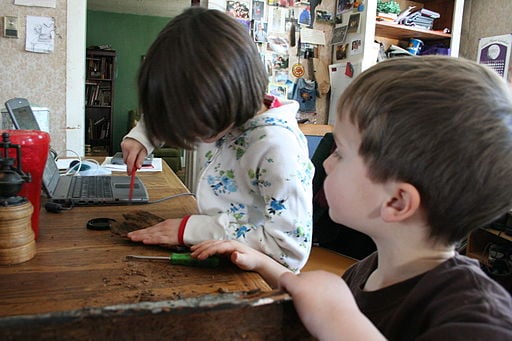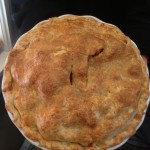To celebrate our semester of studying the American Revolution last year, my homeschool class went to Philadelphia. Near the Liberty Bell, you can see the outline of the home George Washington occupied as the first president. On the site was a very moving video about all nine enslaved people who worked in the home. It described what happened to each of them, with some of them having remained enslaved, some of them having escaped, and some of them having been freed when Washington died. Watching this video, I learned that Washington chose to free only half of his slaves upon his death.
Except that’s not quite true.
It is factually true. But because the other half of the people enslaved on his estate belonged to Martha’s first husband, he was not legally permitted to free them.
I get it. We mythologize Washington, ignoring the fact that he was, you know, a human. Which means he had some of those ugly human tendencies, you know, toward sin. And his sin contributed to the most heinous, shameful beginning of our country, a beginning whose ugliness continues to stain our country. So I get that we need to correct the myth that he was a perfect human being, who even as a child “could never tell a lie.”
And when we learn that our hero was a slave owner, we need to resist the temptation to say, as many have, that he was “a great slave owner for his time.” There are no great slave owners. Yes, his treatment of slaves was often less horrific than that of others. But approximately three enslaved people escaped from Mount Vernon every year. Even when he was President, and his “house slaves” had easier work than many “field slaves,” several of them escaped to freedom. You can’t make slavery less than evil and less than oppressive. So, yes, we should make sure that schoolchildren understand that Washington owned and abused slaves and they wanted no part of it.
But we do no one any favors by correcting the first problem by committing a second. Washington was not all evil. And even his relationship with slavery was complicated. He became a slave owner when he was eleven. His father died, and young George inherited ten people. Try to imagine that. Being eleven and owning people, and knowing that it was the right state of affairs for you to own them and to own their children. You grew up, bought more slaves, and then married a woman with many slaves. Eventually, the two of you own hundreds of slaves. Hundreds.
You head off to lead your country in war, and despite being desperately in need of troops, you want no black soldiers in your army. They couldn’t be trusted and weren’t capable of being the best soldiers. This you know.
But something happens over time. You are surrounded by abolitionist officers. You have state militia that already have black soliders. Slowly, imperceptibly at first, you change.
George Washington changed. By the end of his life, Washington was against slavery. He would no longer break up families through sale. He allowed many of the families on his estate to live together – in the same cottage. He tried to convince fellow slave owners that slavery was not financially wise. No enslaved person will ever work as hard as a free person; it would be soul crushing to do so. He had to stop talking to Martha about slavery because she had not changed and it was the one area in their marriage over which there was conflict.
He had changed. But not completely. After the war, he wrote to a friend that, “there is not a man living who wishes more sincerely than I do to see some plan adopted for the abolition” of slavery. But when they were writing the Constitution, he had to choose between advocating for that plan and getting states like South Carolina and Georgia to join the union. He chose the latter.
There is more, of course. And all of it is complicated. For everyone who wants to say that George Washington was the most honorable man our country has ever known, there is a ghost crying out for justice. For everyone who demands that we see him only as an oppressor whose fight for “liberty for all” was a mockery, there is are decisions he made regarding slavery that required more strength than most of us will ever show about anything.
Liberty demands justice, but it’s meaningless without mercy. The same is true of history.












